剧本角色

FOREMAN
男,0岁
主持人,高中老师

NO. 2
男,0岁
银行职员
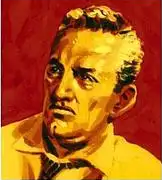
NO. 3
男,0岁
公司老板

NO. 4
男,0岁
股票经纪人
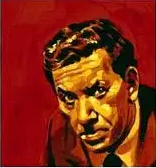
NO. 5
男,0岁
贫民窟长大
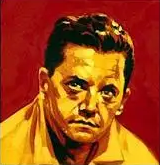
NO. 6
男,0岁
工人
Twelve Angry Men 十二怒汉
by REGINALD ROSE
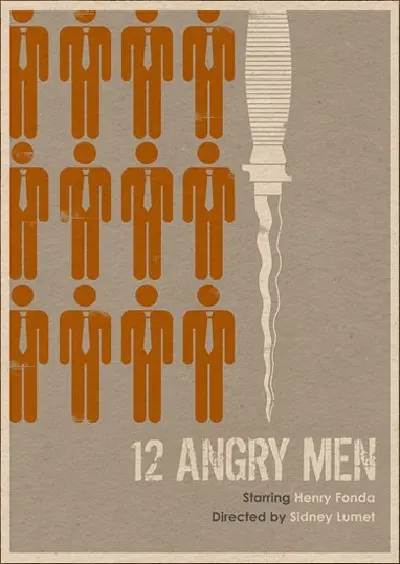
故事简介:
故事发生在一个封闭的房间之中,十二名陪审团成员在此作出裁决的全过程,案件指控一名刚成年的少年杀害了他的父亲,各项证据都表明少年就是凶手,似乎是确凿无疑的事实了。这十二名陪审团成员素不相识,因为这样一件事坐到一个屋子里,他们要决定的是另外一个同样素不相识毫不相干的人的生死。
唠叨两句:
剧本全部内容取自1957年美国电影《十二怒汉》,有删改。此电影之经典有数个翻拍版本,中国版《十二公民》为其中之一。影片全程只有一个场景就是一间狭小的会议室,但精彩的编导和演员精湛的演技让90分钟的唇枪舌剑充满紧张感,毫无尿点,层层递进,一气呵成。没看过的朋友建议走完本后观看原片领略该影片的全部魅力。个人认为是一部值得反复观看的佳作,相信每个人多少都会从中有所收获。
角色分配:
推荐配置7人:(即按相同颜色默认分角,词数由多至少,相对平均)
一 NO. 8
二 NO. 3
三 旁白
四 FOREMAN, NO. 4
五 NO. 2, NO. 7, NO. 12
六 NO. 5, NO. 9, NO. 11
七 NO. 6, NO. 10
也可根据人数或实际情况结合以下角色介绍自行调整
角色介绍:
旁白,GUARD(两句),JUDGE(一句):可选。多为描述场景和人物动作变化。缺人可跳过(不建议)。词贼多。
FOREMAN: (第9顺位转变)也是NO. 1,负责主持会议,组织投票。较为理智,尽力维持秩序使会议有序进行,除了投出自己的一票几乎没有参与案件讨论。词中。
JUROR NO. 2: (第5顺位转变)涉世未深,单纯,好奇,重视秩序。说话小心翼翼。词少。
JUROR NO. 3: (第12顺位转变)暴躁老哥。固执,火爆。失去耐心后全程暴跳如雷。与NO. 8硬刚到底。建议CV吃饱后演绎此角色,很累。词贼多。
JUROR NO. 4:(第11顺位转变)沉着冷静,严肃,十分理智,逻辑性强。智商在线并全程积极参与讨论每一个细节。词多。
JUROR NO. 5:(第3顺位转变)善良,自卑,爱憎分明。忍无可忍时才起身反驳。出身贫民窟。词中。
JUROR NO. 6:(第6顺位转变)酱油。善良,有正义感。词少。
JUROR NO. 7:(第7顺位转变)粗俗懒散,玩世不恭。并不在乎案件,随波逐流,一心只想快点结束去看球赛。词多。
JUROR NO. 8:(首先提出无罪)主角。性格平稳正派,语言温和而富有逻辑。凭借全程在线的智商和人格魅力,最终扭转乾坤。词贼多。
JUROR NO. 9:(第2顺位转变)睿智爷爷。有智慧,观察力强,语言温和敏锐,语速不快但句句铿锵有力。词中。
JUROR NO. 10:(第10顺位转变)暴躁老头。顽固不化,怀着强烈的个人情感和偏见,粗鲁无礼。根深蒂固的歧视者,看不起穷人和移民。词多。
JUROR NO. 11:(第4顺位转变)欧洲移民。性格温和思维有条理,信念感强。带口音演绎最佳,不带也不影响。词中。
JUROR NO. 12:(第8顺位转变)酱油。肤浅,容易动摇,缺乏信念。词少。
BGM:
CV可注意配合旁白中的情节充分利用周边的环境。心中有戏,人人都是拟音师:)
现在请各位陪审员就坐,会议即将开始。。。
ACT 1 1vs11
JUDGE: Murder in the first degree—premeditated homicide—is the most serious charge tried in our criminal courts. You've heard a long and complex case, gentlemen, and it is now your duty to sit down to try and separate the facts from the fancy. One man is dead. The life of another is at stake. If there is a reasonable doubt in your minds as to the guilt of the accused . . . then you must declare him not guilty. If, however, there is no reasonable doubt, then he must be found guilty. Whichever way you decide, the verdict must be unanimous. I urge you to deliberate honestly and thoughtfully. You are faced with a grave responsibility. Thank you, gentlemen.
NO. 7: (to NO. 6). Y' know something? It's hot. (NO. 6 nods.) You'd think they'd at least air condition the place. I almost dropped dead in court.
GUARD: Okay, gentlemen. Everybody's here. If there's anything you want, I'm right outside. Just knock.
[He exits, closing the door. Silently they all look at the door. We hear the lock clicking.]
NO. 5: I never knew they locked the door.
NO. 10: (blowing nose). Sure, they lock the door. What did you think?
NO. 5: I don't know. It just never occurred to me.
NO. 3: Six days. They should have finished it in two. Talk, talk, talk. Did you ever hear so much talk about nothing?
NO. 2: (nervously laughing). Well… I guess . . . they're entitled.
NO. 3: Everybody gets a fair trial. (He shakes his head.) That's the system. Well, I suppose you can't say anything against it.
NO. 7: (to NO.10). How did you like that business about the knife? Did you ever hear a phonier story?
NO. 10: (wisely). Well, look, you've gotta expect that. You know what you're dealing with.
NO. 7: Yeah, I suppose. What's the matter, you got a cold?
NO. 10: (blowing). A lulu. These hot-weather colds can kill you.
FOREMAN: (briskly). All right, gentlemen. Let's take our seats.
NO. 7: Right. This better be fast.' I've got tickets to The Seven Year Itch tonight. I must be the only guy in the whole world who hasn't seen it yet. (He laughs and sits down.) Okay, your honor, start the show.
[They all begin to sit down. The foreman is seated at the head of the table. NO. 8 continues to look out the window.]
FOREMAN: (to NO. 8). How about sitting down? (NO. 8 doesn't hear him.) The gentleman at the window.
[NO 8 turns, startled.]
FOREMAN: How about sitting down?
NO. 8: Oh. I'm sorry.
NO. 10: (to NO. 6). It's tough to figure, isn't it? A kid kills his father. Bing! Just like that. Well, it's the element. They let the kids run wild. Maybe it serves ‘em right.
FOREMAN: Is everybody here?
NO. 12: The old man's inside.
[The foreman turns to the washroom just as the door opens. NO. 9 comes out, embarrassed.]
FOREMAN: We'd like to get started.
NO. 9: Forgive me, gentlemen. I didn't mean to keep you waiting.
FOREMAN: It's all right. Find a seat.
[NO. 9 heads for a seat and sits down. They look at the foreman expectantly.]
FOREMAN: AII right. Now, you gentlemen can handle this any way you want to. I mean, I'm not going to make any rules. If we want to discuss it first and then vote, that's one way. Or we can vote right now to see how we stand.
NO. 7: Let's vote now. Who knows, maybe we can all go home.
NO. 10: Yeah. Let's see who's where.
NO. 3: Right. Let's vote now.
FOREMAN: Anybody doesn't want to vote? (He looks around the table. There is no answer.) Okay, all those voting guilty raise your hands.
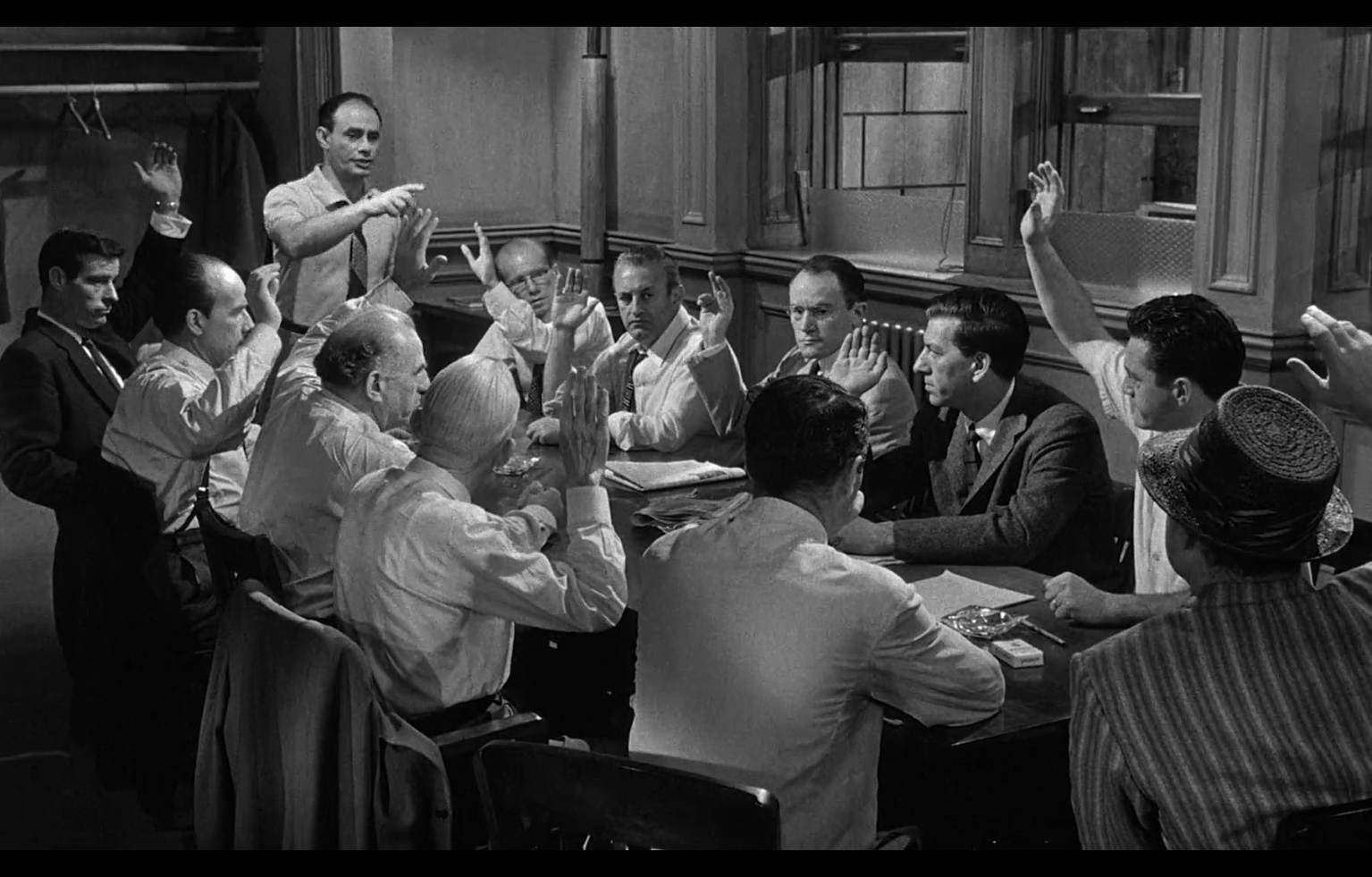
FOREMAN: Nine... ten ... eleven... That's eleven for guilty. Okay. Not guilty? (NO. 8's hand is raised.) One. Right. Okay. Eleven to one, guilty. Now we know where we are.
NO. 3: (sarcastically) Somebody's in left field. (To NO. 8) You think he's not guilty?
NO. 8: (quietly). I don't know.
NO. 3: I never saw a guiltier man in my life. You sat right in court and heard the same thing I did. The man's a dangerous killer. You could see it.
NO. 8: He's nineteen years old.
NO. 3: That's old enough. He knifed his own father, four inches into the chest. An innocent little nineteen-year old kid. They proved it a dozen different ways. Do you want me to list them?
NO. 8: No.
NO. 10: (to NO. 8). Well, do you believe his story?
NO. 8: I don't know whether I believe it or not. Maybe I don't.
NO. 7: So what'd you vote not guilty for?
NO. 8: There were eleven votes for guilty. It's not so easy for me to raise my hand and send a boy off to die without talking about it first.
NO. 7: Who says it's easy for me?
NO. 8: No one.
NO. 7: What, just because I voted fast? I think the guy's guilty. You couldn't change my mind if you talked for a hundred years.
NO. 8: I don't want to change your mind. I just want to talk for a while. Look, this boy's been kicked around all his life. You know, living in a slum, his mother dead since he was nine. That's not a very good head start. He's a tough, angry kid. You know why slum kids get that way? Because we knock 'em on the head once a day, every day. I think maybe we owe him a few words. That's all.
NO. 10: I don't mind telling you this, mister. We don't owe him a thing. He got a fair trial, didn't he? You know what that trial cost? He's lucky he got it. Look, we're all grownups here. You're not going to tell us that we're supposed to believe him, knowing what he is. I've lived among 'em all my life. You can't believe a word they say. You know that.
NO. 9: (to NO. 10 very slowly). I don't know that. What a terrible thing for a man to believe! Since when is dishonesty a group characteristic? You have no monopoly on the truth.
NO. 3:(interrupting) All right. It's not Sunday. We don't need a sermon.
NO. 9: What this man says is very dangerous.
NO. 4: I don't see any need for arguing like this. I think we ought to be able to behave like gentlemen.
NO. 7: Right!
NO. 4: If we're going to discuss this case, let's discuss the facts.
FOREMAN: I think that's a good point. We have a job to do. Let's do it.
NO. 11:(with accent). If you gentlemen don't mind, I'm going to close the window. (He gets up and does so.) (Apologetically) It was blowing on my neck.
NO. 10:(blows his nose fiercely)
NO. 12: I may have an idea here. I'm just thinking out loud now but it seems to me that it's up to us to convince this gentleman (indicating NO. 8) that we're right and he's wrong. Maybe if we each took a minute or two, you know, if we sort of try it on for size.
FOREMAN: That sounds fair enough. Supposing we go once around the table.
NO. 7: Okay, let's start it off.
FOREMAN: Right (To NO. 2) I guess you're first.
NO. 2:(timidly). Oh. Well . . . (Long pause) I just think he's guilty. I thought it was obvious. I mean nobody proved otherwise.
NO. 8: (quietly). Nobody has to prove otherwise. The burden of proof is on the prosecution. The defendant doesn't have to open his mouth. That's in the Constitution. The Fifth Amendment. You've heard of it.
NO. 2: (flustered). Well, sure, I've heard of it. I know what it is. I . . . what I meant . . . well, anyway, I think he was guilty.
NO. 3: Okay, let's get to the facts. Number one, let's take the old man who lived on the second floor right underneath the room where the murder took place. At ten minutes after twelve on the night of the killing he heard loud noises in the upstairs apartment. He said it sounded like a fight. Then he heard the kid say to his father, "I'm gonna kill you.!” A second later he heard a body falling, and he ran to the door of his apartment, looked out, and saw the kid running down the stairs and out of the house. Then he called the police. They found the father with a knife in his chest.
FOREMAN: And the coroner fixed the time of death at around midnight.
NO. 3: Right. Now what else do you want?
NO. 4: The boy's entire story is flimsy. He claimed he was at the movies. That's a little ridiculous, isn't it? He couldn't even remember what pictures he saw.
NO. 3: That's right. Did you hear that? (To NO. 4) You're absolutely right.
NO. 10: Look, what about the woman across the street? If her testimony don't prove it, then nothing does.
NO. 12: That's right. She saw the killing, didn't she?
FOREMAN: Let's go in order.
NO. 10: (loud). Just a minute. Here's a woman who's lying in bed and can't sleep. It's hot, you know. (He gets up and begins to walk around, blowing his nose and talking.) Anyway, she looks out the window and right across the street she sees the kid stick the knife into his father. She's known the kid all his life. His window is right opposite hers, across the el tracks, and she swore she saw him do it.
NO. 8: Through the windows of a passing elevated train.
NO. 10: Okay. And they proved in court that you can look through the windows of a passing el train at night and see what's happening on the other side. They proved it.
NO. 8: I'd like to ask you something. How come you believed her? She's one of "them" too, isn't she?
[NO. 10 walks over to NO. 8:]
NO. 10: (sarcastically) You're a pretty smart fellow, aren't you?
FOREMAN: (rising) Now take it easy.
[NO. 3 gets up and goes to NO. 10:]
NO. 3: Come on. Sit down. (He leads NO. 10 back to his seat.) What're you letting him get you all upset for? Relax.
[NO. 10 and NO. 3 sit down.]
FOREMAN: Let's calm down now. Number. 5, it's your turn.
NO. 5: I’ll pass it.
FOREMAN: That's your privilege. (To NO. 6) How about you?
NO. 6: (slowly). I don't know. I started to be convinced, you know, with the testimony from those people across the hall. Didn't they say something about an argument between the father and the boy around seven o'clock that night? I mean, I can be wrong.
NO. 11: I think it was eight o'clock. Not seven.
NO. 8: That's right. Eight o'clock. They heard the father hit the boy twice and then saw the boy walk angrily out of the house. What does that prove?
NO. 6: Well, it doesn't exactly prove anything. It's just part of the picture. I didn't say it proved anything.
FOREMAN: Anything else?
NO. 6: No.
[NO. 6 goes to the water fountain.]
FOREMAN: (to NO. 7). All right. How about you?
NO. 7: I don't know, most of it's been said already. We can talk all day about this thing, but I think we’re wasting our time. Look at the kid's record. At fifteen he was in reform school. He stole a car. He's been arrested for mugging. He was picked up for knife-fighting. I think they said he stabbed somebody in the arm. This is a very fine boy.
NO. 8: Ever since he was five years old his father beat him up regularly. He used his fists.
NO. 7: So would I! A kid like that.
NO. 3: You’re right. It's the kids. The way they are—you know? They don't listen. (Bitter) I've got a kid. When he was eight years old, he ran away from a fight. I saw him. I was so ashamed, I told him right out, "I'm gonna make a man out of you or I'm gonna bust you up into little pieces trying." When he was fifteen he hit me in the face. He's big, you know. I haven't seen him in three years. Rotten kid! You work your heart out.... (Pause) All right, let's get on with it. [Looks away embarrassed.]
NO. 4: We're missing the point here. This boy—let's say he's a product of a filthy neighborhood and a broken home. We can't help that. We're not here to go into the reasons why slums are breeding grounds for criminals. They are. I know it. So do you. The children who come out of slum backgrounds are potential menaces to society.
NO. 10: You said it there. I don't want any part of them, believe me.
--silence for a moment--
(带--xxx--为群体沉默不用读,下一位CV自行把控时长)
NO. 5: (haltingly)I've lived in a slum all my life.
NO. 10: Oh, now wait a second!
NO. 5: I used to play in a back yard that was filled with garbage. Maybe it still smells on me.
FOREMAN: Now let's be reasonable. There's nothing personal.
NO. 5: (stands up)There is something personal! [fists clenched.]
NO. 3: (persuasively). Come on, now. He didn't mean you, feller. Let's not be so sensitive.
--silence for a moment--
NO. 11: I can understand this sensitivity.
FOREMAN: Now let's stop the bickering. We're wasting time. (To NO. 8) It's your turn.
NO. 8: All right. I had a peculiar feeling about this trial. Somehow I felt that the defense counsel never really conducted a thorough cross-examination. I mean, he was appointed by the court to defend the boy. He hardly seemed interested. Too many questions were left unasked.
NO. 3: (annoyed). What about the ones that were asked? For instance, let's talk about that cute little switchknife. You know, the one that fine, upright kid admitted buying.
